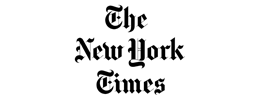Related

On April 3, Marron Senior Fellow Paul Romer joined Princeton’s Bendheim Center for Finance for a seminar on the economic impact of the COVID-19 pandemic and strategies for re-starting the economy once social-distancing measures are lifted. Romer suggests:
A quicker recovery could be enormously valuable and really worth trillions, not billions. . . . I do not think the interesting conversation here is about more or less lives lost versus more or less money. It is just not where the interesting conversation is. The conversation needs to be about given the lives that we would save on the current baseline strategy, is there a way to actually save more lives and have more output, get some economic gains. Is there something just deeply inefficient about what we are doing, and I think the answer is what we are doing is deeply and profoundly inefficient. There is a nuance here in the sense that we can't shift today to a more efficient strategy, but I think now it is quite feasible to shift within a month or two to a strategy that is profoundly more efficient than the one we are on.
Romer has outlined this strategy in several media outlets. He wrote an opinion piece, “Testing Is Our Way Out” in The Wall Street Journal with Rajiv Shah. Here is the Twitter-thread version of his plan. In addition, Romer was featured in recent interviews with CNN's Fareed Zakaria GPS and on WNYC's The Brian Lehrer Show. Lastly, Romer's plan was reviewed by Vox's Ezra Klein and explored by Vox's Umair Irfan.
Please fill out the information below to receive our e-newsletter(s).
*Indicates required.